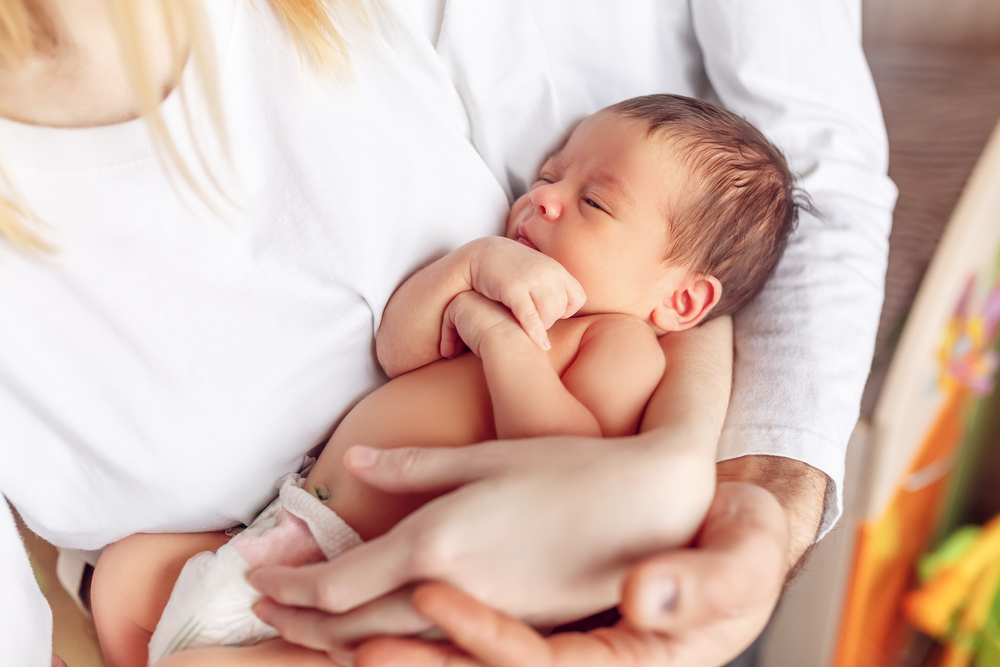
Written by Kylie Lucas, Pharmacist
As an expecting mother myself, coming home from the hospital with a newborn is an exciting but also overwhelming time for any parent. There’s often a lot of questions but rest assured, your pharmacist is the perfect resource to help you during those first few weeks at home.
To support you during this busy but amazing time, I've listed my top suggestions below:
Be prepared!
It’s a good idea to stock up with a few key supplies before you bring your new baby home. Babies feed, sleep and wake around the clock – so it’s very likely you may need something in the middle of the night! Consider nappies, hypoallergenic baby wipes, cotton wool or soft cloths for patting the umbilical cord stump dry, sterile saline for bathing sticky eyes, gentle bath products and an ear thermometer suitable for infants. Depending on how you intend on feeding your baby, you may find it handy to have some other accessories such as bottles, dummies or a breast pump.
Don’t forget to have some essentials for yourself either. You may need pain medication after childbirth (ask your pharmacist about breastfeeding-safe options), gentle laxatives or cream for cracked nipples. Remember to also think about child safety items such as a bath thermometer or a baby monitor. They will be invaluable in those early months.
Hint: If you have a friend who is due to have a baby soon, also remember that these items may make a great thoughtful gift for a baby shower.
Skin care
Most babies will experience skin irritation at some stage, and newborn babies are only just getting used to the outside environment! When bathing your baby, use a soap-free, pH-balanced liquid wash or bath oil. Gently pat the skin dry with a soft towel and follow with a gentle moisturiser while the skin is still damp. A soothing cream may also be needed for dribble or nappy rash.
Colds and sniffles
Little ones may get an average of 5-10 colds per year and this often causes concern for new parents. To help thin nasal secretions, you can run a cool-mist humidifier in the nursery and use saline nose drops or spray. Nasal aspirators are also available to help suction out the mucus from your baby’s nostrils. Use them prior to feeding and sleeping as these are the times when it is most important for your baby to be able to breathe clearly.
It’s important to keep up their fluids (with breastmilk or formula as appropriate) and monitor their nappies to see if they are wet enough. It’s an indication that they are adequately hydrated! If your baby has a high fever, has difficulty breathing, won't take fluids (or has less wet nappies than normal), or is less alert than usual, seek advice from your pharmacist or doctor as soon as possible.
Tummy troubles
Young babies commonly suffer from wind or stomach aches as their gut gets used to digesting milk. Generally, these are minor and will settle over the first few months. You may find a warm bath where your baby can kick its legs or a gentle massage will help to calm them. Probiotic supplements are also popular and some are suitable to use from birth to help establish a good gut flora. Occasionally, a baby may have an underlying issue such as reflux, so seek advice if these simple measures don’t give relief.
Know where to go for more advice
The early days with a newborn are filled with so many questions and as a new parent, it is easier said than done when people tell you not to worry! Keep a list of phone numbers on your fridge for places you can contact for support and suggestions – your GP, child health nurse and your local pharmacy are great starting points.
This post was written by Kylie Lucas. Kylie has been a pharmacist for over 10 years and works in a country town pharmacy in the south west of Western Australia. She lives on a farm with her husband, daughter and lots of pet animals.
These Stories on Medication Management
Suite 2 Level 7, 500 Bourke Street
Melbourne, Victoria 3000
Australia
Email us: support@medadvisor.com.au
MedAdvisor is an affiliate member of the World Pharmacy Council.
No Comments Yet
Let us know what you think